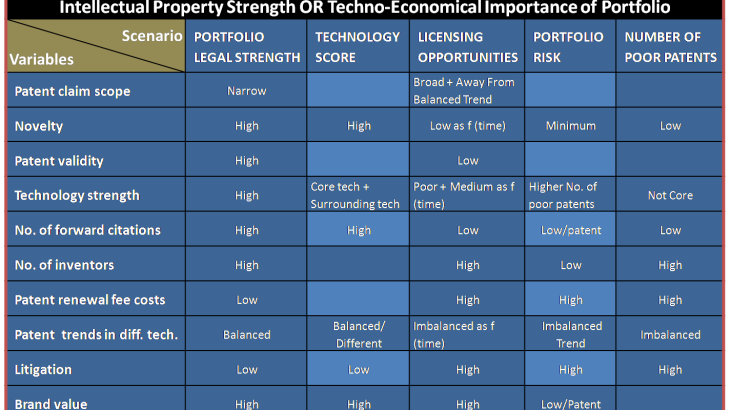Recently, the hon’ble High Court of Delhi, while hearing an application for interim injunction, in the matter of FMC Corporation & Ors. vs. GSP Crop Science Private Limited, dismissed the same with costs of Rs. 2 lakhs to be paid by the Plaintiffs to the Defendant, strongly condemning the grounds raised for the interim injunction against the Petitioners holding that the Plaintiffs are prima facie guilty of suppressing material facts and misleading the Court as also the patent office. The hon’ble High Court, further allowed the Defendant to maintain account of sales and produce the same on a half-yearly basis, during the pendency of the present suit.
Now, let’s analyze how a ‘Working Statement’ holds importance in this case.
To start with basics, a ‘Working Statement’ is something which patentees need to file every year to ensure that patents are granted to encourage inventions and that they are worked in India on a commercial scale to the fullest extent that is reasonable and practical without undue delay.
In the mentioned case, one of the strong grounds on which the court emphasized was the non-working of the suit patent for more than 20 years from the priority date and 19 years since filing in India, further highlighting this as a serious doubt as to the industrial applicability of the patent itself. The hon’ble Court while rejecting the Plaintiff’s’ application for interim application, considered that the threshold for industrial applicability at the time of granting a patent was not very high, but at present stage (stage of interim injunction), i.e. after 19 years, the invention has not been worked and the term of the patent has nearly expired, the hon’ble Court, restricted itself in granting an interim injunction.
Going deep into the intention of the Plaintiffs, the hon’ble Court further strongly held this to be a clear indication of an attempt to evergreen CTPR with the extensive array of patents that have been filed in relation to it and the different processes, components, and methods, which was done despite the fact that the product’s patent has expired and entered the public domain for creating confusion for the public.
The importance of a ‘working statement’ in this matter cannot be discussed without considering the important point that the Defendant in this matter has already secured permissions from the necessary authorities for the manufacture and commercial launch of CTPR, thereby having the advantage in the balance of convenience. In light of this, the Defendant was allowed to maintain account of sales and produce the same on a half-yearly basis, during the pendency of the present suit, the next hearing for which is fixed on 23rd January 2023.
Brief about ‘Working Statement’
The Statement of Working which the patentee or licensee submits to the IPO (Indian Patent Office) is crucial information that outlines the commercial exploitation of a patent in India. This working system statement also determines if the patent satisfies the reasonable expectations of the general public. It makes sure that a third party will be given the chance if the patent is not put into effect within three years of the date of award or if the reasonable requirements of the public are not met.
What the law says about a Working Statement
According to rule 131 and section 146(2) of the Indian Patent Act 1970, a statement of working must be submitted for every patent that is now in effect. With regard to all Indian patents that have been granted the declarations must be filed annually. These statements of working reveal the extent of the patented inventions in commercial application. The working statement must be submitted by March 31st of each year for the previous calendar year. Each year, within three months of the conclusion of the calendar year, this statement is submitted by filing the required Form-27. The patentee, the licensee, or a patent agent or attorney with the address of service in India may all submit this form online. To submit this form to the IPO if the patentee or licensee lives outside of India, he must get in touch with an Indian patent agent or attorney.
The controller at any time can also ask the patentee or the licensee to submit details in writing as to what extent of commercialization in respect of the patent has been exploited in India, as per Section 146(1).
When submitting Form 27, the declaration of how a patented invention works, the following information must be updated with the Indian Patent Office:
Ø If the invention is not worked then the reason of not working should be mentioned and steps taken
Ø If the innovation is used, the cost of the Indian patent or the cost of the patent imported from another nation
Ø Information about the license and the sublicense
Ø Whether the public need has been satisfied
Penalty Provision
In case, the patentee or licensee refuses or fails to submit information as required under Sec 146, the patentee or licensee can be punished with a fine, which can be extended up to Ten lakh rupees under Section 122(1)(b). Further, providing wrongful information or statement can impose imprisonment up to six months or fine or both under Section 122(2). A patent can be also revoked on the grounds of non-working of a patented invention under section 85 of the Indian Patent Act 1970.
Conclusion
This order of the hon’ble High Court of Delhi, stands a perfect example to explain the importance of filing a correct and workable working statements with respect to your patent. It has been seen that it is crucial to provide information about the patent process and order to avoid exploitation, according to Indian patent laws. The primary goal of patent grants in India is to promote invention, often known as innovation, research, and technology. Additionally, it is made sure that the patent holder’s idea is used commercially for the good of the general public. The information about the patented invention’s commercialization in Indian jurisdiction is disclosed by submitting a statement of working or a ‘working statement’ with the IPO to avoid the non-commercialization, non-use, or abuse of patented inventions, when making business decisions and evaluating mandatory licenses, the information supplied on the mandated form is helpful.
Subscribe to our monthly newsletter here and read all our blogs here




